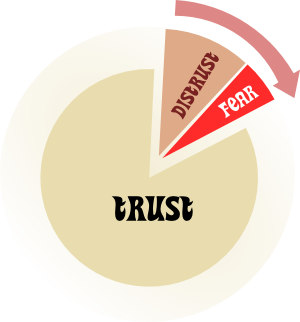The Office of Fair Trading is consulting on how to protect shoppers online — so we all spend more, of course! But while they’re there this could be a great opportunity for everyone from shoppers to security experts to have their say. This summarises the main issues.
Doing well so far
Now, we’re already pretty good at buying things online. Lots of people do it, we trust most of the people who are selling us things, and we spend a lot of money.
- Could there be more competition though,to help things get even cheaper? Is there anything more we can do crack down on scams? Are UK online businesses good enough at responding to change?
- The OFT says if we trust who we buy from, we can get the best deals — we gain the confidence to shop around (making businesses more competitive), and we’re more likely to try new things (giving businesses a reason to make new products and improve old ones).
- They think we need to find ways for online businesses to be more consistent, that we all need to work together to protect ourselves, increase trust in buying online and remember that we’re not just dealing with the UK, online shopping is global.
- They say we’re in a good position: number 1 in Europe for businesses selling online, and Ireland second. Second only to Luxembourg for the number of people working in these businesses, third to Norway and Denmark for number of people buying online, and most trusting of internet business.
But funnily enough, not everyone trusts the internet. Nearly 20% of people with an net connection don’t shop online, and a third of those aren’t shopping because they’re scared of getting scammed.
But people are adapting well to the new ways of pricing things they keep coming up with, like when they give you a price upfront then tack on extras afterwards.
Big big savings
- A website where people can complain about online traders and get advice on their rights and internet pitfalls. Make it easier to get your money back – perhaps by helping people band together to take on companies.
- A good old-fashioned awareness campaign, backed up by the businesses we’re helping protect.
- Get people to use review sites so they get a better idea of what they’re buying and trade info about good and bad companies with other shoppers.
- They want to find out what payment protection is out there already, and how they can make it stronger.
- Simple guides for businesses so they understand the rules better, in easy to find places
- Making sure businesses who deal with shoppers selling to other shoppers explain the rules clearly too.
- Getting the people who already record who the spammers and fraudsters are to share what they know
- Finding groups abroad that know about policing the net, and seeing if something similar would work in the UK
- Get everyone together and work out a better way to tackle spam.
- Use web technology to find websites and companies that aren’t playing by the rules
- Making the enforcement we’ve got better, finding the gaps and filling them
- Get a list of enforcement agencies in other countries so we know who to talk to – then share information.
 It’s only about 15 years since the internet became really popular, and in that time things have moved incredibly fast. Technology and business models are changing all the time, so fast that our laws can’t always keep up. The OFT thinks we need some sophisticated ways of working out what’s going to happen next. They want to:
It’s only about 15 years since the internet became really popular, and in that time things have moved incredibly fast. Technology and business models are changing all the time, so fast that our laws can’t always keep up. The OFT thinks we need some sophisticated ways of working out what’s going to happen next. They want to:
- Make sure that when things change, the rules are right behind them (or even ahead).
- Put systems in place to work out where things are going, what the trends are, so they can understand and deal with new ideas better and faster.
That’s about it. You can have a closer look at the consultation if you want to know more detail, send your ideas straight in, or get talking on twitter, facebook or even this blog — everything helps. Make sure you’ve got everything down by 13 October 2010 though!
Corinne Pritchard
Latest posts by Corinne Pritchard (see all)
- Linked — 5 September 2016
- Designing a fashion website — 26 October 2014
- Service design conference — 9 October 2014

